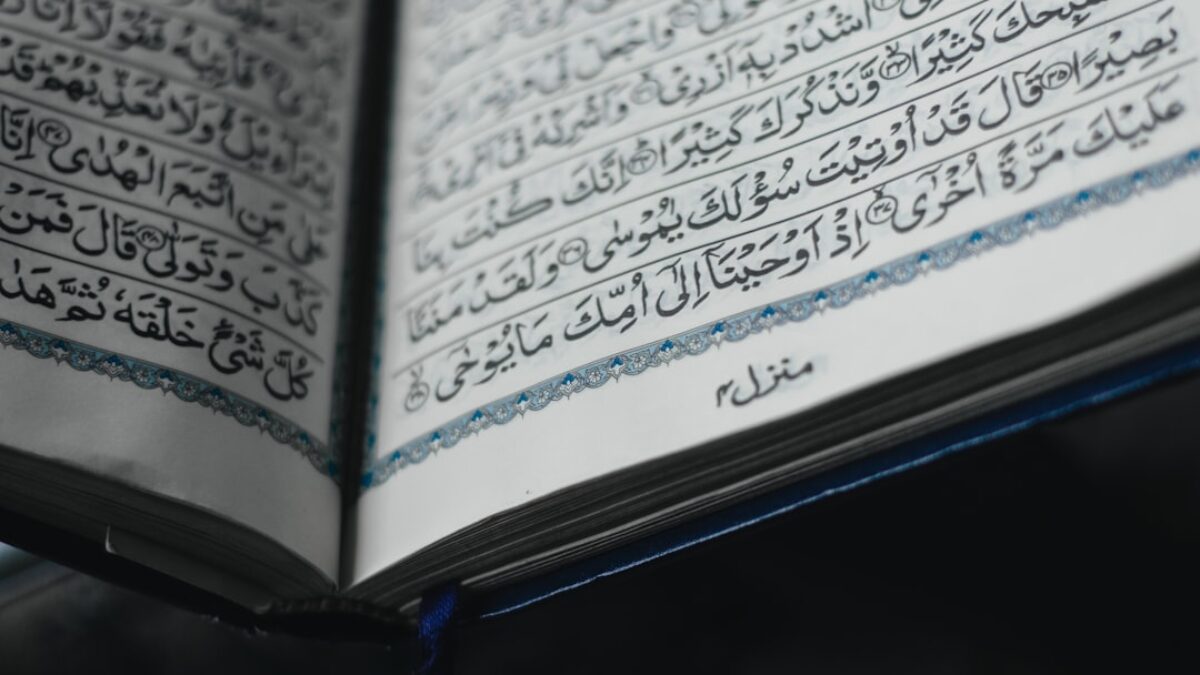Feeling overwhelmed by racing thoughts, a pounding heart, or a tight chest is a universal human experience, yet for many these sensations of anxiety arrive uninvited and linger far beyond their welcome. In the Islamic tradition, spiritual recourse is never far away. The Qur’an and authentic Sunnah offer a treasury of duas—supplications that not only seek divine assistance but actively re-center the believer’s heart and mind. This article explores powerful duas for instant anxiety relief, grounding them in scriptural sources and everyday practice so that you can turn moments of distress into moments of profound calm.
Understanding Anxiety Through an Islamic Lens
Defining Anxiety in Qur’anic Language
The Qur’an uses several Arabic terms that correspond to modern understandings of anxiety. Ḥuzn (حُزْن) denotes sorrow or grief, while qalaq (قَلَق) and dhīq (ضِيق) reflect inner agitation and constriction in the chest. Allah mentions these states not to shame believers, but to validate their feelings and guide them toward healing. For instance, when Prophet Ya‘qub (as) cried so much over the loss of Yusuf (as) that he “became blind from grief” (Surah Yusuf 12:84), the narrative illustrates both the depth of human emotion and the eventual relief that tawakkul (trust in Allah) brings.
Spiritual Roots of Anxiety
From an Islamic standpoint, anxiety can be triggered by:
- Uncertainty about the future
- Attachment to worldly outcomes
- Neglect of spiritual maintenance (e.g., missed prayers, unprocessed sins)
- Overstimulation by dunya (material life)
Recognizing these roots allows us to pair professional mental-health strategies with ruqyah (spiritual therapy) for holistic relief.
Key Components of Powerful Duas for Anxiety Relief
Core Elements Every Dua Should Contain
- Praise of Allah (al-ḥamdu lillāh): Opens the heart with gratitude.
- Salawat upon the Prophet ﷺ: Invokes divine nearness.
- Specific request: Articulates the need (e.g., “relieve my chest, grant me sakīnah”).
- Affirmation of tawakkul: Reaffirms trust in Allah’s decree.
- Closing glorification: Ends on a note of hope and humility.
Authentic Sources for Duas
| Source | Example | Reference |
|---|---|---|
| Qur’an | Surah Al-Baqarah 2:286 (last two verses) | Recited nightly by the Prophet ﷺ |
| Sahih Bukhari | Dua of distress taught to Sa’d ibn Abi Waqqas | Hadith 6346 |
| Jami’ at-Tirmidhi | “Allahumma inni abduka…” | Hadith 3522 |
Benefits and Importance of Reciting Anxiety-Relief Duas
Neuro-Spiritual Impact
Modern neuroscience confirms that repetitive rhythmic recitation (similar to dhikr) activates the parasympathetic nervous system, lowering cortisol levels. When coupled with intentional meaning-making—meditating upon Allah’s names such as Al-Salām (The Source of Peace)—the brain’s default-mode network shifts from threat-detection to safety and connection.
Spiritual Benefits
- Strengthened tawakkul: Less reliance on outcomes, more reliance on Allah.
- Increased barakah in time and resources.
- Protection from shayṭā, whose whispers inflame anxiety.
Social and Emotional Advantages
Reciting duas aloud or in groups normalizes vulnerability, creating spaces where Muslims can speak openly about mental health. This communal aspect reduces stigma and fosters empathy.
Practical Applications: How to Use Specific Duas for Instant Relief
1. The “Master Dua” – Ayat al-Kursi Plus Last Two Verses of Al-Baqarah
Text (Arabic, Transliteration, Translation)
Recite after every obligatory prayer and before sleep. The Prophet ﷺ said, “Whoever recites the last two verses of Surah Al-Baqarah in the night, they will suffice him” (Bukhari 5009).
- Begin with “Bismillāh…”
- Recite Ayat al-Kursi (2:255) slowly, visualizing Allah’s encompassing protection.
- Finish with verses 285-286.
Practical tip: Pair the recitation with deep diaphragmatic breathing—inhale on “Allah,” exhale on “la ilaha illa huwa.”
2. The Qul Duas – Surah Al-Ikhlāṣ, Al-Falaq, and An-Nās
- Al-Ikhlāṣ affirms Allah’s oneness, cutting through existential anxiety.
- Al-Falaq seeks refuge from external harm (envy, black magic).
- An-Nās seeks refuge from internal whisperings.
Method: Recite each three times after Fajr and Maghrib, then blow gently into cupped hands and wipe over your face and chest.
3. Morning and Evening Adhkār – A Shield for the Day
| Time | Dua | Frequency | Effect |
|---|---|---|---|
| After Fajr | “Allahumma inni asbahtu…” | 1× | Frames the day positively |
| After Maghrib | “Allahumma inni amsaytu…” | 1× | Closes the day with gratitude |
| 3× daily | “Hasbunallahu wa niʿma-l-wakīl” | 3× | Instant anxiety anchor |
4. The Prophet’s ﷺ Dua for Distress
ʿAbdullāh ibn Masʿūd reported that the Prophet ﷺ said, “No slave is afflicted with anxiety or grief and then says:
‘Allahumma inni ʿabduka ibn ʿabdika ibn amatika,āsiyati bi yadika…’
except that Allah will remove his distress.”
Memorization hack: Record yourself reciting it in Arabic and listen during commute times. Repetition embeds the dua in subconscious recall.
5. Dua of Yunus (as) – “La ilaha illa anta…”
Recite 100× daily or 7× in acute situations. Many report a palpable “unclenching” in the chest within minutes.
6. Combining Duas with Grounding Techniques
Create a 5-minute “micro-ritual”:
- Body scan: Notice where anxiety resides (jaw, shoulders, stomach).
- Recite: “Bismillāh al-Raḥmāal-Raḥīm” aloud, feeling vibrations in the chest.
- Imagine: Divine light descending from the heavens and filling the tense area.
- Exhale: Whisper, “Al-Salām.”
- Repeat for 8 cycles.
Integrating Duas into Professional Mental-Health Care
Islam encourages seeking both spiritual and medical means. If anxiety is chronic, pair duas with therapy, medication, or lifestyle changes. Share your preferred duas with a culturally sensitive clinician so they can weave them into cognitive-behavioral or mindfulness exercises.
Frequently Asked Questions
What if I cannot pronounce Arabic perfectly?
Allah judges sincerity, not accent. Begin with transliteration and gradually refine pronunciation. The Prophet ﷺ said, “The one who is proficient in the Qur’an is with the noble scribes, and the one who recites it and stumbles finds a double reward” (Bukhari 4937). Accept your imperfections as gateways to humility, not barriers to dua.
How quickly can I expect relief?
Relief varies: some feel calm within minutes; others experience a gradual lessening over weeks. The key is consistency. Treat the dua like prescribed medication—take the full spiritual “course” even if symptoms ease early.
Can women recite these duas during menstruation?
Yes. While touching the mushaf is impermissible without a barrier, recitation from memory or digital devices is allowed. Allah’s mercy encompasses every state of the believer.
Is it permissible to recite duas as a playlist while sleeping?
Permissible, provided the audio is respectful and free of musical instruments. Select recordings with clear, slow recitation to foster subconscious absorption without violating Islamic etiquette.
How do I teach these duas to children?
- Use storytelling: Relate the dua of Yunus (as) to a time he felt trapped inside a whale.
- Create visual aids: Color-coded flashcards with Arabic, transliteration, and meaning.
- Practice “dua buddies”: Pair siblings to recite to each other nightly.
What should I do if anxiety persists despite regular duas?
Consider the following steps:
Seek professional therapy; CBT and EMDR have robust evidence for anxiety disorders. Rule out physical causes (thyroid, vitamin deficiencies). Consult a knowledgeable imam for ruqyah sharʿiyyah if spiritual affliction is suspected. Increase community support through study circles and volunteering.
Can I compose my own dua in my native language?
Absolutely. The Prophet ﷺ said, “Dua is worship” (Tirmidhi 3372). As long as you avoid transgressions (asking for sin or severing ties), personal, heartfelt supplication is encouraged alongside Qur’anic duas.
Conclusion
Islamic teachings do not deny the reality of anxiety; instead, they provide proven spiritual technologies that transform panic into peace, fear into taqwa. By memorizing and regularly reciting the duas detailed above, you anchor yourself in divine remembrance while leveraging neurobiological mechanisms that soothe the body. Remember: Allah is nearer to you than your jugular vein (Qur’an 50:16). In that nearness lies infinite mercy, the ultimate antidote to every anxious whisper. Begin today—recite, breathe, trust—and let your heart find its home in the stillness of La ilaha illa Allah.
























Post Comment